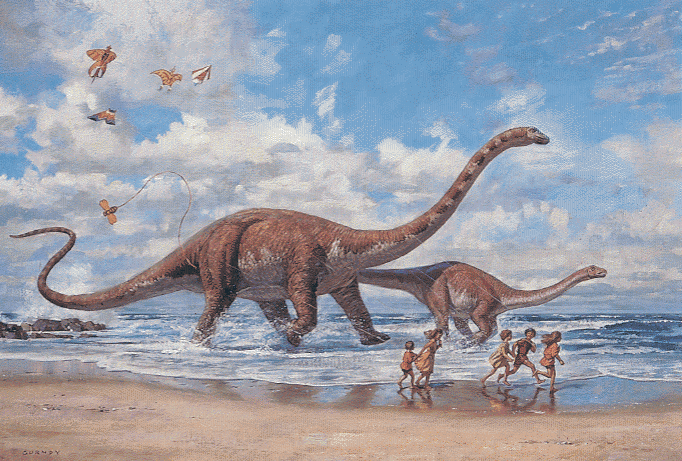TSSP - The
Discovery of
Time

TSSP - The
Discovery of
Time

Like all of us, scientists are shaped by the world around them. We will explore how ideas in biology and geology were shaped by social forces, such as religious beliefs, world view, and recognized authorities. The discovery of the prehistoric world, the modern renaissance of the dinosaur, and theories of mass extinction are great examples of how science often reflects theology, philosophy and society. We will conclude with a survey of creationism and intelligent design, which remind us that philosophy can not only shape scientific theory, but replace it as well.
Instructor: Dr. Bruce E. Fleury
Dept. of Ecology and Evolutionary Biology
Stern 4030, x8290; 865-5191 (Bio Office, 400 Boggs)
email: bfleury@.tulane.edu
home page: http://www.tulane.edu/~bfleury/
Readings
The
following
readings are available online:
Futuyma, D. Hypotheses, Facts, and the Nature of
Science
National
Academy of Sciences. Science,
Evolution, and Creationism.
Recommended reading:
Desmond, A.
The
Hot-Blooded Dinosaurs. Dial Press, 1976.
Glen, W. (ed).
Mass-Extinction Debates: How Science Works In A Crisis.
Stanford
University Press, 1994.
Gould,
S.J. Ever Since
Raup,
D.M. The Nemesis
Affair: A
Story of the
Death of Dinosaurs and the Ways of Science. Norton, 1986.
Toulmin, S and
J.
Goodfield. The Discovery of Time.
Fleury's Creationism/ID
Bibliography
UCMP
Berkely
exhibit on the history of evolutionary thought
Andrews' creationism links and resources
National
Academy of
Science - Evolution resources from the National Academies
National
Academy
of Sciences. Science,
Evolution, and Creationism (booklet)
The
Wedge
Document (Intelligent Design's Manifesto)
The Fundamentals. Full text of the essays online
This page was last updated on 1/17/11